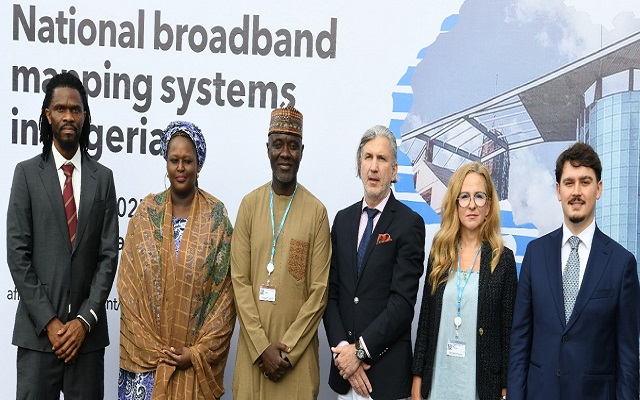The Nigerian Communications Commission (NCC) has sounded the alarm over the growing threats to the nation’s telecommunications infrastructure, disclosing that the industry suffers an average of 1,100 fibre cuts every week, along with frequent incidents of equipment theft and site access denials.
Speaking at the Industry Sustainability and Critical National Information Infrastructure (CNII) Conference in Lagos, NCC Executive Vice Chairman, Dr. Aminu Maida, represented by Mr. Edoyemi Ogoh, Director of the Technical Standards and Network Integrity Department, called for a unified national response to protect Nigeria’s digital backbone.
Hosted by the Nigeria Information Technology Reporters Association (NITRA) and the Association of Licensed Telecom Operators of Nigeria (ALTON), the conference focused on the theme “Telecom Industry Sustainability and CNII Factor – Way Forward.” It drew participants from the media, civil society, the private sector, and government.
Maida emphasized that telecom infrastructure is now officially classified as Critical National Information Infrastructure (CNII) under President Bola Ahmed Tinubu’s administration and the Cybersecurity Act, stressing that its protection is now a matter of national security, economic growth, and digital progress.
He warned that disruptions to telecom infrastructure have far-reaching implications, potentially halting emergency communication, paralyzing financial services, and undermining digital inclusion efforts, making its security a shared national responsibility.
In response, the NCC has adopted a multi-layered protection strategy that includes stricter enforcement of technical standards for fibre deployment and tower construction. Operators are now required to meet higher benchmarks in network installation and maintenance, while the Commission has launched extensive public awareness campaigns through radio, social media, and community outreach.
Beyond regulatory action, Maida revealed that the NCC is engaging strategically with the National Assembly, judiciary, and state Attorneys-General to clarify legal responsibilities under the CNII framework. The Commission is also formalizing collaborations with key ministries, including a planned Memorandum of Understanding (MoU) with the Federal Ministry of Works to prevent infrastructure damage during roadworks and construction activities.
The NCC boss acknowledged progress in some states like Osun and Kogi, where the Commission’s mediation has resolved long-standing community disputes that previously delayed infrastructure rollouts. However, he stressed that while dialogue remains the preferred approach, the Commission will not hesitate to enforce penalties in cases of persistent non-compliance or sabotage.
On the broader topic of sustainability, Dr. Maida noted that it goes beyond environmental concerns, and emphasized the need for financial sustainability to ensure telecom operators can invest and innovate; operational sustainability to guarantee stable and redundant networks; regulatory sustainability to maintain a fair and inclusive policy environment; social sustainability to expand digital access to underserved areas; and security sustainability to shield infrastructure from physical and cyber threats.
Despite NCC’s efforts, Maida admitted that significant challenges persist. Multiple taxation regimes, bureaucratic delays in Right-of-Way approvals, and complex permitting processes continue to slow infrastructure rollout. In addition, the heavy reliance on diesel-powered base stations has led to high operational costs, while increasing security threats across some regions make installation and maintenance dangerous and costly.
He also cited the growing risks posed by cyber threats, particularly with the rise of Over-the-Top (OTT) services and Internet of Things (IoT) devices, which demand urgent and coordinated cyber resilience strategies.
Looking ahead, Maida outlined a five-point national agenda to secure CNII and promote telecom sustainability. This includes strengthening public awareness and encouraging community ownership of telecom assets, improving coordination between stakeholders, especially during construction activities—to avoid accidental damage, and streamlining the process for permits and approvals to reduce delays in infrastructure deployment.
He further stressed the need for enhanced collaboration between the telecom sector and other key industries, and called for stronger enforcement mechanisms, including stiff penalties for those who vandalize or obstruct telecom facilities.
“This is more than just a conference,” Dr. Maida said. “It is a national call to action. We must all rise—regulators, operators, civil society, media, and government—to secure our telecom infrastructure and build a resilient, inclusive, and sustainable digital future for Nigeria.”

